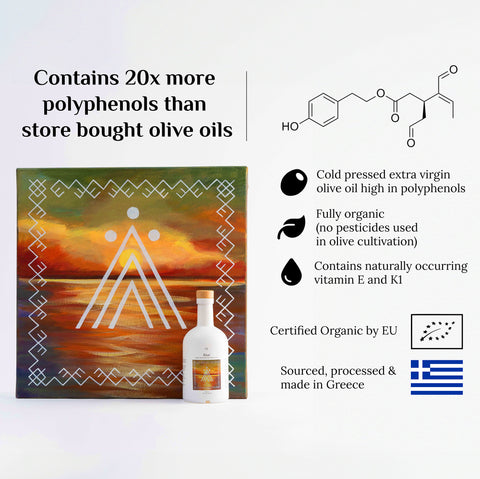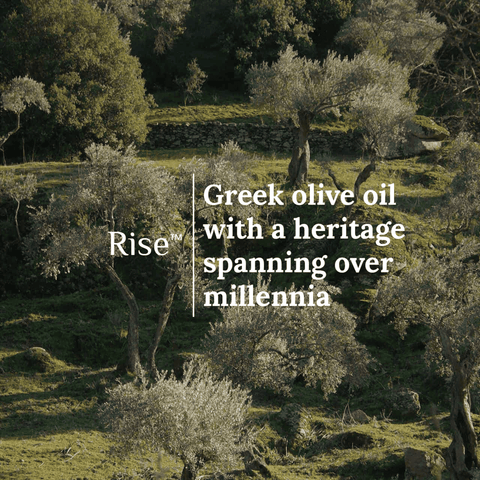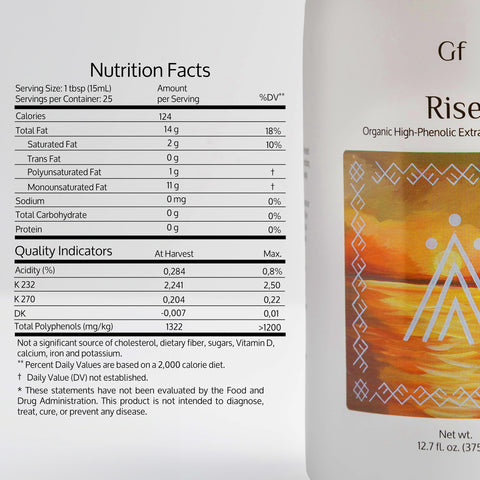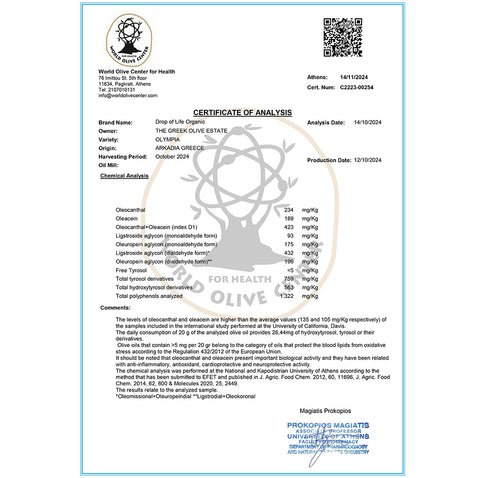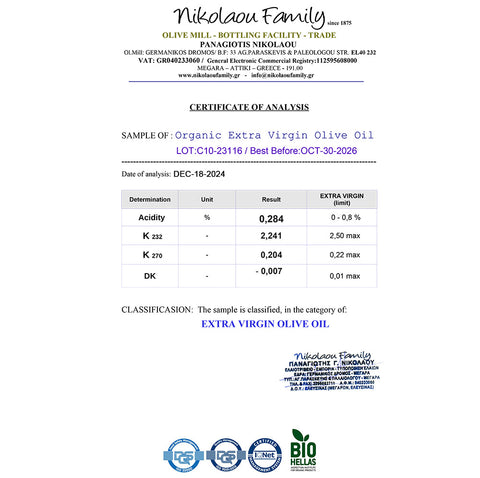Olive oil and coconut oil have both garnered attention as popular, “healthy” cooking oils, each boasting a unique nutritional profile and potential benefits. But which oil is better for your health? To help you make an informed choice, we’ll compare olive oil and coconut oil across key areas, looking at factors like fat composition, cardiovascular benefits, antioxidant content, and other health claims, backed by the latest scientific research.
1. Fat Composition: Monounsaturated vs. Saturated Fat
One of the most significant differences between olive oil and coconut oil is their fat composition. Olive oil is high in monounsaturated fats, particularly oleic acid, which makes up about 73% of its fat content. Monounsaturated fats are known for their heart-protective properties and are a major component of the Mediterranean diet.
-
Olive Oil: A study in the Journal of the American College of Cardiology found that a diet high in monounsaturated fats, like those in olive oil, was associated with a lower risk of cardiovascular disease by improving cholesterol levels and reducing blood pressure (source: PubMed).
-
Coconut Oil: Coconut oil, on the other hand, is predominantly composed of saturated fats, with lauric acid as its primary fatty acid. While saturated fats have historically been linked to increased cholesterol levels, some recent studies suggest that lauric acid may raise HDL (good cholesterol) and, to a lesser extent, LDL (bad cholesterol), with potentially mixed cardiovascular effects (source: PubMed).
2. Cardiovascular Health Benefits
 Olive oil’s established benefits for heart health are one of the reasons it’s widely recommended in health-conscious diets. The polyphenols in extra virgin olive oil (EVOO) have potent antioxidant and anti-inflammatory properties, which contribute to heart health.
Olive oil’s established benefits for heart health are one of the reasons it’s widely recommended in health-conscious diets. The polyphenols in extra virgin olive oil (EVOO) have potent antioxidant and anti-inflammatory properties, which contribute to heart health.
-
Olive Oil: The New England Journal of Medicine published a study showing that a Mediterranean diet enriched with olive oil reduced the risk of major cardiovascular events, including heart attack and stroke, by up to 30% (source: PubMed). This is largely attributed to olive oil’s monounsaturated fats and polyphenols, which reduce oxidative stress and inflammation in the body.
-
Coconut Oil: Research on coconut oil’s effects on cardiovascular health is mixed. While some studies indicate that it may increase HDL cholesterol, which is beneficial, others show that it can also raise LDL levels, which might not be ideal for heart health. A meta-analysis in Nutrition Reviews concluded that while coconut oil may increase HDL, the overall impact on cardiovascular health is still inconclusive compared to olive oil (source: PubMed).
3. Antioxidant Content: Polyphenols vs. Phenolic Acids
Extra virgin olive oil is packed with polyphenols, a type of antioxidant that fights oxidative stress, which is a known factor in chronic disease and aging. Coconut oil contains some phenolic acids, but at significantly lower levels than the polyphenol content found in olive oil.
-
Olive Oil: Polyphenols in olive oil, such as oleuropein and hydroxytyrosol, have been shown to reduce inflammation and protect against cellular damage. A study done by University of Florence noted that these antioxidants contribute to olive oil’s anti-inflammatory properties, which can protect against diseases like cancer and Alzheimer’s (source: PubMed).
-
Coconut Oil: While coconut oil does have some antioxidant properties, its levels are far lower than those found in olive oil. Coconut oil’s phenolic content provides limited antioxidative benefits, so it’s not as potent as olive oil for oxidative stress reduction.
4. Weight Management
Both olive oil and coconut oil have been included in studies focusing on weight loss and weight management, but their effects can differ significantly due to their fat types and how they’re processed by the body.
-
Olive Oil: Due to its monounsaturated fat content, olive oil is considered beneficial for weight management. Research in the European Journal of Clinical Nutrition found that incorporating olive oil into meals led to higher post-meal satiety and reduced appetite, which could support weight control (source: ResearchGate).
-
Coconut Oil: Coconut oil contains medium-chain triglycerides (MCTs), which may boost metabolism and promote fat burning. Some studies suggest that MCTs can increase calorie expenditure, supporting weight loss efforts, although the effect is modest (source: PubMed). However, the majority of coconut oil’s fats are not MCTs, so any weight loss benefits may be limited.
 5. Cooking with Olive Oil vs. Coconut Oil: Stability and Smoke Point
5. Cooking with Olive Oil vs. Coconut Oil: Stability and Smoke Point
For cooking, it’s essential to consider the stability of the oil at high temperatures to avoid producing harmful compounds.
-
Olive Oil: Extra virgin olive oil has a moderate smoke point of around 375°F (190°C), making it suitable for sautéing and light frying. Its stability and antioxidant content help it resist oxidative damage when used in low-to-moderate heat cooking.
-
Coconut Oil: Coconut oil has a higher smoke point (around 400°F or 204°C) than extra virgin olive oil, making it more suitable for higher-heat cooking. Its saturated fat content is also less likely to oxidize at higher temperatures.
6. Skin Health Benefits: Olive Oil vs. Coconut Oil
Both oils are popular in skincare routines, each offering unique benefits. Olive oil’s antioxidants can help reduce inflammation and protect skin from free radical damage, while coconut oil’s lauric acid provides antimicrobial effects.
-
Olive Oil: Research published in peer-reviewed journal called Nutrients found that the polyphenols in olive oil may protect skin from photodamage and aging due to sun exposure (source: PubMed).
-
Coconut Oil: Coconut oil has been studied for its antibacterial properties, which may benefit acne-prone or sensitive skin. Coconut oil can help improve skin barrier function and is effective as a moisturizer (source: PubMed).
Final Comparison: Which Oil Should You Choose?
When it comes to overall health benefits, olive oil generally comes out on top due to its heart-protective monounsaturated fats, high polyphenol content, and well-documented cardiovascular and anti-inflammatory benefits. Coconut oil has some unique properties and is better suited for high-heat cooking, but its high saturated fat content means it should be used in moderation.
In the end, both oils can play a role in a balanced diet, but if heart health, inflammation, and antioxidant intake are priorities, olive oil is often the preferred choice based on current research.




